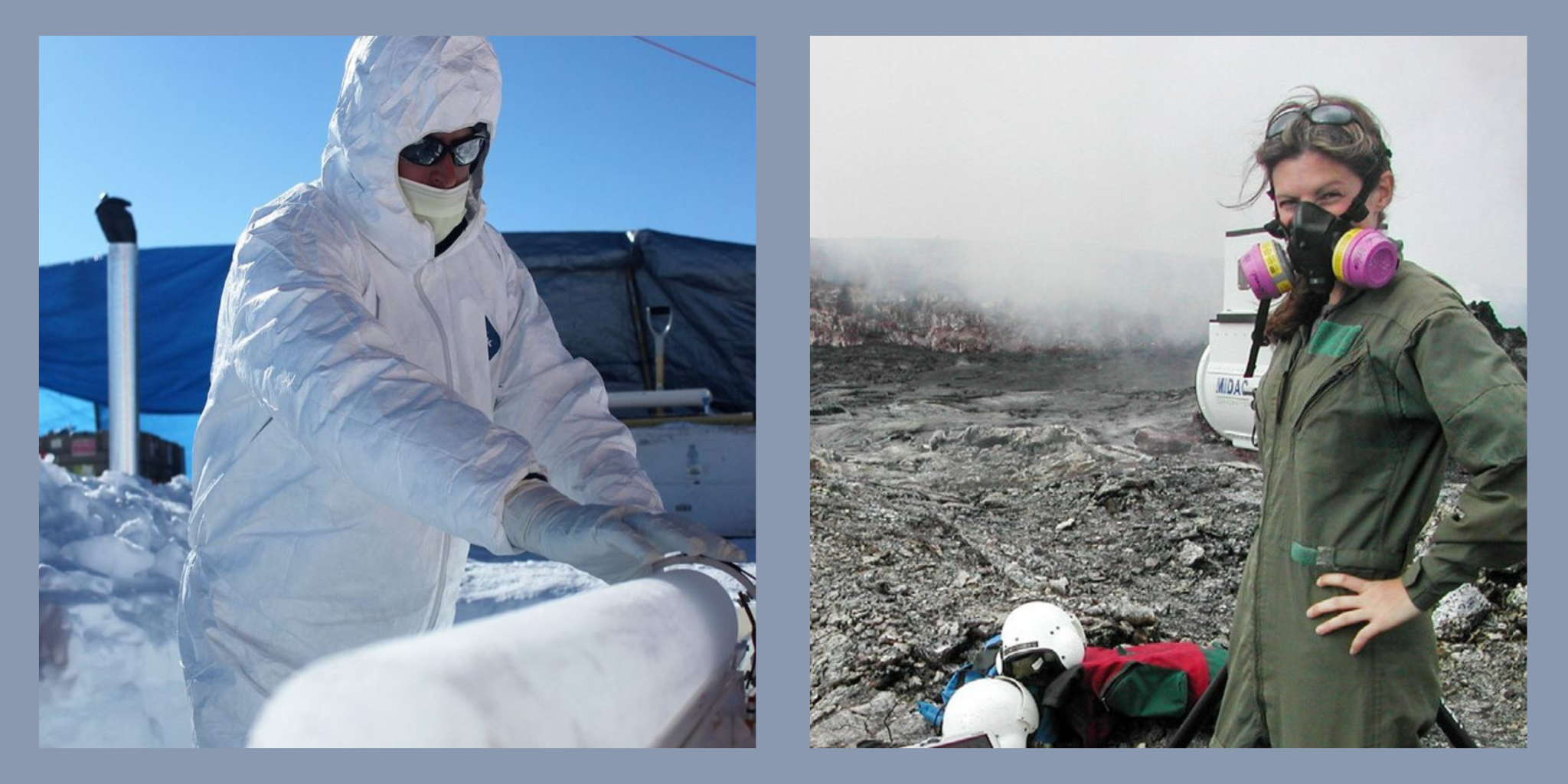
Submitted by Dr C.M. Martin-Jones on Mon, 23/01/2023 - 15:38
Two Cambridge Earth Scientists have been awarded NERC funding for research that will ‘open up discipline-shifting discoveries in environmental science.’
Dr Rachael Rhodes and Professor Marie Edmonds have received NERC ‘Exploring the Frontiers’ grants, allowing them to investigate questions at the forefront of volcanology and climate science using innovative analytical approaches.
Professor Marie Edmonds – Tracing the sources and pathways of selenium in volcanic environments
Selenium is an essential micronutrient for humans and animals, playing a key role in metabolic functions and maintaining health. But even slightly elevated levels of selenium can cause harm; leading to toxicity and environmental damage. With a fine line between safe and dangerous exposure, scientists need to understand the distribution and uptake of selenium in the environment.
The amount of selenium in our food largely reflects the soil it is grown in or reared on, which varies markedly across the world in relation to the underlying geology. In the UK, soils are selenium deficient and require supplementation — but in volcanic areas it may be present at hazardous levels. Despite growing populations living in volcanic areas, selenium emissions from volcanoes are poorly understood because the element is difficult to measure in volcanic gases or hydrothermal fluids.
In a new project, Professor Marie Edmonds — with Dr Emma Liu (UCL) and Dr Frances Jenner (Open University) — will use new analytical and drone-based techniques to better understand volcanic emissions of selenium. “Volcanoes comprise one of the key natural sources of selenium,” said Edmonds, “But, up until now, our quantitative understanding of volcanic selenium has been extremely limited.”
The project will focus on recent episodes of volcanic activity, including the La Palma 2021 and Kilauea 2018 eruptions. A key aim, Edmonds explains, is to better characterize the chemical form of the selenium released, which can determine how it is absorbed by plants and animals. Edmonds also plans to investigate volcanic emissions of sulfur, which is in the same chemical family — meaning its presence can interfere with selenium bioavailability in the environment.
Dr Rachael Rhodes - Pioneering new greenhouse gas measurements on ice cores
As anthropogenic greenhouse gas emissions continue to rise, scientists want to know exactly how the climate system will respond in the future. But factors including climate feedbacks and tipping points — which can lead to abrupt changes in the way our climate works — complicate model forecasts of climate change.
To understand these complex scenarios, scientists look into Earth’s history to assess the relationship between carbon dioxide and climate change through time. Ice cores are one of the most detailed sources of this information — containing trapped bubbles of ancient air which can be measured to reveal how atmospheric greenhouse gases have fluctuated in the past.
Scientists have developed a method for analysing ice cores that involves simultaneously melting the ice and measuring the gases that are driven off. But detailed measurements of the key greenhouse gas carbon dioxide, together with nitrous oxide, have not been possible using the technique.
Dr Rachael Rhodes will be developing the technique to allow for analyses of the three main greenhouse gases, “The aim is to get the same data quality and quick analysis turnaround that we would for methane measurements.” Getting data on carbon dioxide and nitrous oxide at timescales of decades or centuries would allow the ice core community to explore changes at an important, human-relevant timescale, explains Rhodes.
The project is a collaboration with the British Antarctic Survey, where a new Ice Core Gas Lab has recently been established by Dr Thomas Bauska. Laser spectrometers specifically adapted to handle small and challenging gas samples will be used. The work highlights some of the research being undertaken in Cambridge’s LASER-ENVI environmental facility, which is led by Dr Sasha Turchyn.
